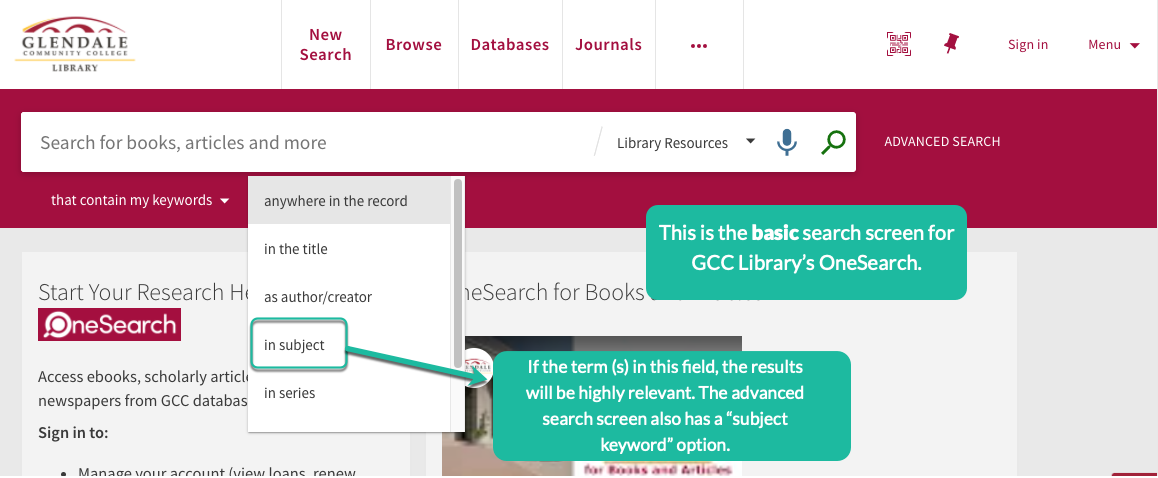25
For each main concept, list alternative terms, including synonyms and singular and plural forms of the words.
Sometimes synonyms, plurals, and singulars aren’t enough. So also consider associations with other words and concepts. For instance, it might help, when looking for information on the common cold, to include the term virus—because a type of virus causes the common cold.
Check to make sure that your terms are not too broad or too narrow for what you want. Figuring out what’s too broad or too narrow takes practice and may differ a bit with each search.
Tip: Try a Thesaurus
Have you considered using a thesaurus, such as thesaurus.com? Or adding a thesaurus to your browser search bar?
Subject Headings Instead of Keywords
All the searches we have talked about so far have been keyword searches, usually used in search engines. But sometimes it pays to use tools—such as library catalogs, article databases, and discovery tools (search engine database that allows you to across multiple library resources; these are often a combined search of books, articles, and other media the library owns and is most often found in academic libraries)—that have subject headings that you can search. Subject headings are standardized terms that are assigned by trained experts. Most libraries use the Library of Congress Subject Headings to determine the official subject headings to associate a source’s main subjects/concepts. Some search tools also allow for subject keyword searching, which is a very effective search option. Below is an example of the GCC Library’s OneSearch basic search screen.

